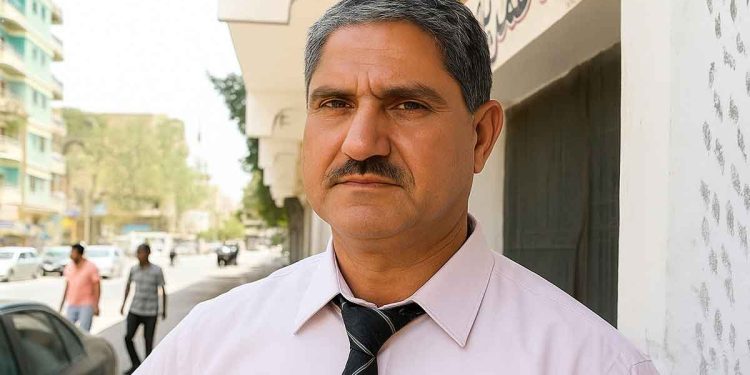As harsh conditions persist inside Egypt’s prisons — conditions that violate the most basic standards of humane detention — former Egyptian MP and physician Alaa al-Din al-Azab, aged 60, has died in Badr 3 Prison, east of Cairo, after more than twelve years in detention.
Al-Azab, who represented the Zifta constituency in Gharbia Governorate in the first parliament elected after the 25 January 2011 revolution, was arrested following the military coup that ousted the late President Mohamed Morsi. He was later tried in mass proceedings that resulted in a life sentence on charges related to his political affiliation and alleged incitement against the current regime.
Throughout his lengthy detention, al-Azab reportedly endured prolonged solitary confinement, denial of family visits, and deprivation of basic medical care. His family repeatedly appealed for his transfer to an external hospital, but their requests were ignored by the authorities.
According to family accounts, al-Azab’s death followed a sharp deterioration in his health due to a systematic policy of medical deprivation used as a punitive tool within Egyptian prisons, where political detainees are routinely denied medication, regular check-ups, and referrals to specialised hospitals except in rare and late-stage cases.
His death once again draws attention to the rising number of fatalities inside Egyptian prisons, particularly within the Badr Prison Complex, which has become a symbol of isolation, deprivation, and the severing of communication between detainees and the outside world.
The death of al-Azab as a result of medical neglect constitutes a flagrant violation of Article 55 of the Egyptian Constitution, which prohibits physical or psychological harm to detainees and obliges the state to provide them with health care. It also breaches the UN Standard Minimum Rules for the Treatment of Prisoners (Nelson Mandela Rules), which guarantee prisoners access to medical services equivalent to those available to the general population.
The continued denial of medical treatment and health care to political prisoners represents a direct legal responsibility for the Egyptian Prison Authority and the executive authorities, who remain fully accountable for the safety and wellbeing of those under their custody.
The deaths of al-Azab and other detainees require the immediate opening of an independent investigation into the circumstances of their deaths, and the urgent access of impartial observers to Egyptian prisons to assess the humanitarian and medical conditions within them.
Alaa al-Din al-Azab’s death marks yet another episode in a long and tragic series of prison fatalities in Egypt — a stark indicator of the country’s deepening human rights crisis, and a painful reminder of the price of silence in the face of ongoing suffering behind closed prison walls.


























